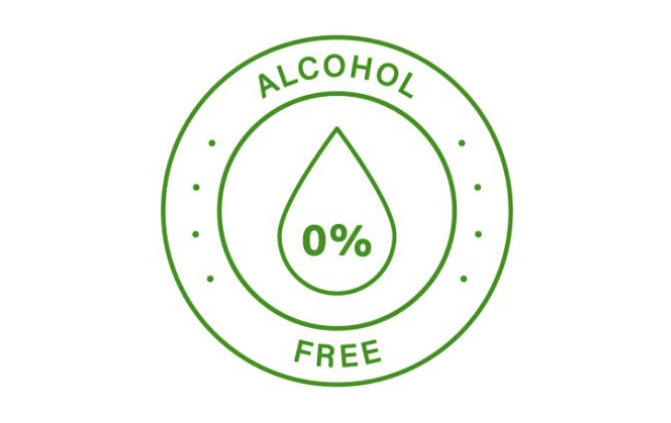Health, What to Eat and Drink
Are Alcohol-free Drinks Affecting The Liver
In recent years, alcohol-free drinks have grown in popularity, with an increasing number of people choosing non-alcoholic beverages at social gatherings, but there is growing worry about their influence on liver health.
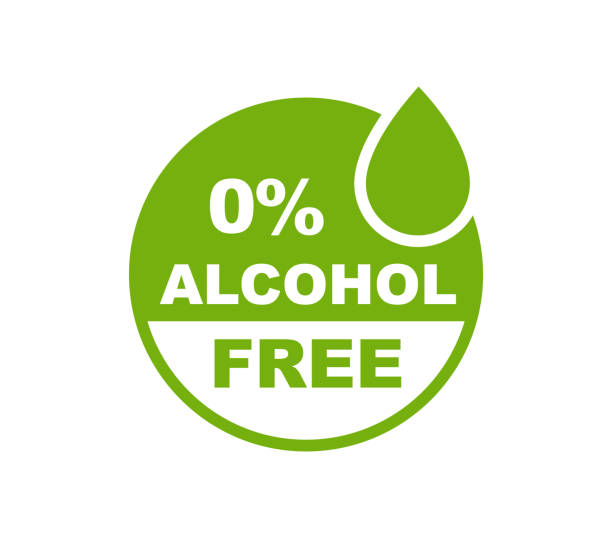
Overview of Alcohol-Free Drinks
Alcohol-free drinks, often known as non-alcoholic beverages, are gaining popularity among customers seeking healthier alternatives to alcoholic beverages. These beverages are alcohol-free, but they may contain trace levels of alcohol (less than 0.5%) due to the fermentation process.
The market for alcohol-free drinks is quickly expanding as customers become more health conscious and seek alternatives to traditional alcoholic beverages. Beer, wine, and spirits are among the options, as are non-alcoholic cocktails and mocktails.
Alcohol-free drinks are frequently promoted as a better alternative to alcoholic beverages, with several claiming to provide health benefits such as lower calorie counts, decreased sugar content, and enhanced liver function. However, it is crucial to note that some alcohol-free beverages may still contain significant levels of sugar and calories, which can be damaging to one’s health if drank in excess.
Overall, alcohol-free drinks can be an excellent option for those who wish to experience the flavor of alcoholic beverages without the negative health consequences of alcohol. However, it is critical to select drinks that are low in sugar and calories to guarantee that they are healthy for the body.
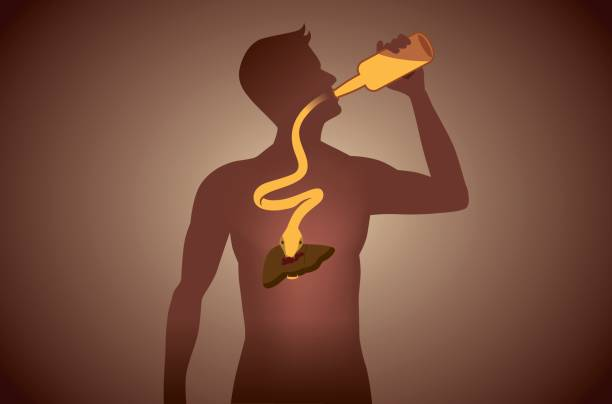
Effects of Alcohol on the Liver
The liver metabolizes and eliminates alcohol from the body. However, excessive alcohol use can overwhelm the liver, resulting in damage and disease. In this section, we will look at how alcohol affects the liver, including how it is metabolized and how it causes damage.
Alcohol Metabolism
When alcohol is taken, it is absorbed into the bloodstream and delivered to the liver. Enzymes in the liver convert alcohol into acetaldehyde, a poisonous chemical that can harm liver cells. Acetaldehyde is subsequently converted into acetate, which is eventually degraded into carbon dioxide and water and removed from the body.
However, excessive alcohol use can exceed the liver’s ability to process alcohol, resulting in the buildup of acetaldehyde and other harmful chemicals in the liver. This can result in inflammation and damage to liver cells, ultimately leading to liver disease.
Liver Damage and Disease
Chronic alcohol intake can lead to a variety of liver illnesses, including fatty liver disease, alcoholic hepatitis, and cirrhosis. Fatty liver disease is defined by the buildup of fat in the liver, which can cause inflammation and liver damage. Alcoholic hepatitis is a more severe type of liver inflammation that can result in liver failure and death. Cirrhosis is the most severe form of liver disease, in which good liver tissue is replaced with scar tissue, resulting in liver failure and death.
To summarize, excessive alcohol use can cause substantial liver damage and disease. It is critical to consume alcohol in moderation and get medical assistance if you believe you have liver damage or disease.
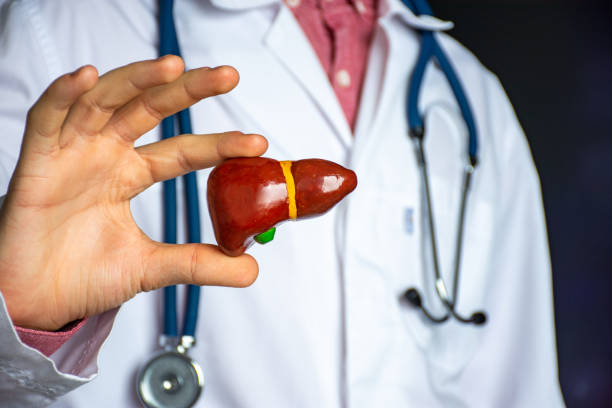
Alcohol-Free Drinks and Liver Health
Alcohol is known to harm the liver and raise the risk of disorders including cirrhosis and liver cancer. As a result, many people are turning to non-alcoholic beverages as a healthier option. However, the issue remains: are alcohol-free beverages truly safe for the liver?
Ingredients in Alcohol-Free Drinks
Most alcohol-free beverages are produced with water, sugar, and other flavorings. Some include fruit juices, herbal extracts, and other natural components. While these chemicals are generally considered harmless, some may have a negative impact on liver function.
For example, high sugar levels in nonalcoholic beverages can cause fatty liver disease, a condition in which fat accumulates in the liver and inhibits its function. Furthermore, some plant extracts and flavorings may include pyrrolizidine alkaloids, which are hazardous to the liver.
Potential Non-Alcoholic Toxins
Another problem with alcohol-free beverages is the possibility of non-alcoholic contaminants. Many of these beverages are created with processed ingredients, which may contain dangerous chemicals or additives. For instance, some artificial sweeteners have been related to liver damage and other health issues.
Furthermore, certain alcohol-free beverages may include a high concentration of caffeine or other stimulants. When these compounds are consumed in excess or in conjunction with other medicines or prescriptions, they might harm the liver.
Overall, while alcohol-free drinks may be preferable to alcoholic beverages, they are not always liver-friendly. Consumers should be aware of the potential hazards associated with these beverages and, whenever possible, opt for goods derived from natural, organic ingredients.
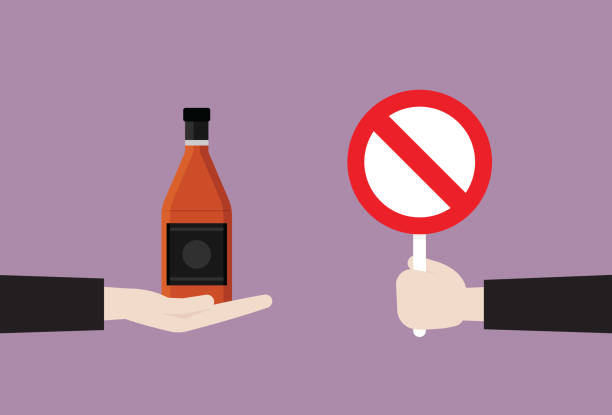
Comparative Analysis
Alcohol vs. Alcohol-Free Impact
Alcohol usage is known to have negative consequences on the liver, including inflammation, cirrhosis, and cancer. However, the effects of alcohol-free drinks on the liver are little understood.
A comparison of the effects of alcohol versus alcohol-free beverages on the liver reveals that the latter have a substantially lesser impact on liver health. Alcohol-free drinks, unlike alcoholic beverages, do not contain ethanol, which has been linked to liver damage.
One study discovered that persons who drank alcohol-free beer had lower levels of liver enzymes, which are signs of liver damage, than those who drank alcohol-containing beer. Furthermore, alcohol-free drinks are typically lower in sugar and calories, which can benefit liver function.
Risk Assessment
While alcohol-free drinks may be less harmful to liver function than alcohol, it is crucial to recognize that not all alcohol-free drinks are made equal. Some alcohol-free beverages may still include high quantities of sugar and calories, which can contribute to obesity and other health issues that have an indirect impact on liver function.
It is also worth noting that excessive consumption of any form of drink, including alcohol-free beverages, can be harmful to liver function. As a result, it is recommended that alcohol-free drinks be used in moderation as part of a well-balanced diet.
In conclusion, while alcohol-free drinks may have a lower impact on liver function than alcohol, it is vital to examine their overall nutritional content and consume them in moderation.

Consumer Behavior and Trends
As customers become more health conscious, the demand for alcohol-free beverages has increased. This tendency stems from a desire to limit alcohol usage and its related hazards, which include liver damage.
According to a YouGov survey, 41% of adults in the UK have cut back on alcohol use in the last year, with 31% citing health concerns as the primary reason. This trend is not unique to the United Kingdom; similar polls in other nations have revealed a similar decline in alcohol intake.
In reaction to this tendency, the market for alcohol-free beverages has expanded dramatically. These beverages include alcohol-free beer, wine, and spirits, as well as non-alcoholic cocktails and soft drinks. Many of these items are marketed as healthier alternatives to standard alcoholic beverages, with claims of less calories and a lower risk of liver damage.
Overall, consumer behavior and trends indicate that alcohol-free drinks are becoming increasingly popular as a healthier alternative to typical alcoholic beverages. However, some alcohol-free drinks may still include excessive levels of sugar or other ingredients, which might have harmful health consequences. Consumers should be aware of the components in these goods and make informed decisions based on their own health requirements.
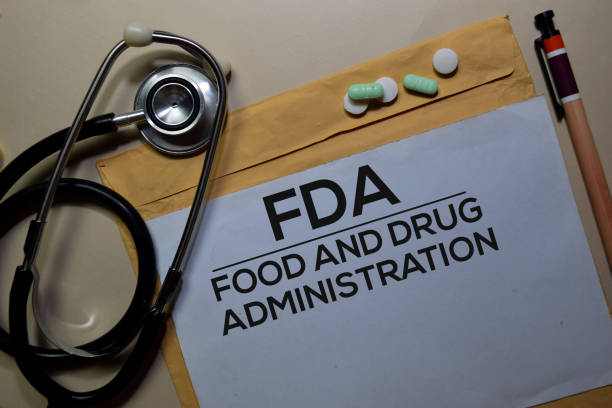
Regulatory Perspective on Alcohol-Free Drinks
Alcohol-free drinks are regulated as non-alcoholic beverages. In the United States, the Alcohol and Tobacco Tax and Trade Bureau (TTB) oversees non-alcoholic beverage labeling and advertising. The TTB ensures that non-alcoholic beverage labels appropriately indicate their alcohol level. If a beverage contains less than 0.5% alcohol by volume (ABV), it is classified as non-alcoholic and can be labeled so.
The European Union (EU) has adopted a similar definition of non-alcoholic beverages. The EU defines a non-alcoholic beverage as one with no more than 0.5% ABV. The EU also requires non-alcoholic beverage labels to appropriately indicate their alcohol level.
Regulatory organizations also demand that non-alcoholic beverages be safe to consume. The US Food and Drug Administration (FDA) oversees the safety of non-alcoholic beverages in the United States. The FDA demands that non-alcoholic beverages be free of hazardous ingredients and meet specific quality criteria.
Overall, regulatory organizations guarantee that alcohol-free beverages are properly labeled and safe to consume. However, it is crucial to realize that, while alcohol-free drinks contain little to no alcohol, they may still include other substances that can harm the liver or overall health. It is always recommended to consume alcohol-free beverages in moderation and to check with a healthcare expert if there are any concerns regarding liver health.

Future Research Directions on Alcohol-Free Drinks
As the usage of alcohol-free drinks increases, more research is needed to understand the long-term impact on the liver. Currently, there is little information on the impact of these drinks on liver function, and additional research is needed to discover whether they are a safe substitute for alcoholic beverages.
Future research could look into whether alcohol-free drinks can induce liver damage in people who already have liver disorders, such as non-alcoholic fatty liver disease (NAFLD). It is uncertain whether consuming these drinks may worsen liver damage or cause liver disease.
Another topic of study could be the effect of various types of alcohol-free beverages on liver health. For example, some alcohol-free beers include trace levels of alcohol, whilst others do not. It is critical to understand how these various types of drinks influence the liver and whether they offer any hazards to its health.
Furthermore, researchers could look into the effect of alcohol-free drinks on liver enzymes, which are frequently used as indicators of liver impairment. It is currently unknown whether these drinks can cause changes in liver enzyme levels, and more research is needed to discover whether they are a valid predictor of liver health in those who drink alcohol-free beverages.
To summarize, while alcohol-free drinks may be a safer alternative to alcoholic beverages, further research is needed to completely understand their influence on liver health. More research in this area will provide vital insights into the potential hazards and advantages of these drinks, allowing users to make informed decisions regarding their intake.
Conclusion
In conclusion, the effects of alcohol on the liver are significant and cannot be exaggerated. Alcohol intake has a negative impact on one of our bodies’ important organs, causing fatty liver disease and more serious disorders such as cirrhosis. People must be aware of these consequences in order to make informed decisions about their alcohol consumption. It is clear that moderation and appropriate drinking are vital for maintaining liver function and general well-being. As we manage the intricacies of modern life, recognizing the effects of alcohol on the liver allows us to prioritize our health and make decisions that lead to a long and meaningful life.
Journey of self discovery

